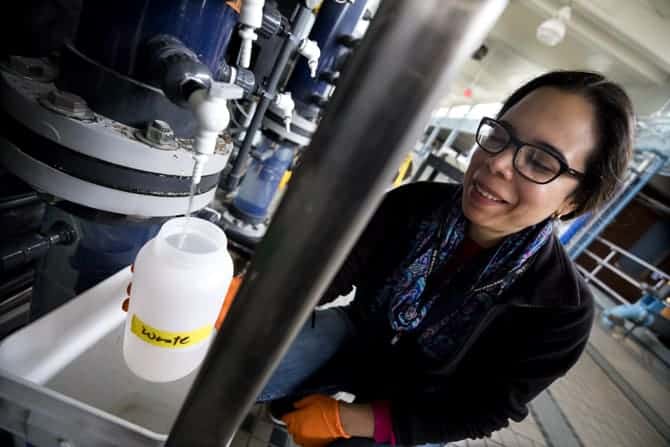
CEE graduates are in demand in countries around the world. They work in industry, government agencies, non-profit organizations and more! Graduates may also be interested in pursuing Master’s or PhD studies. Please see below for helpful resources and information.
Job Search
Licensing information
Professional licensure protects the public by enforcing standards that restrict practice to qualified individuals who have met specific qualifications in education, work experience and exams. In the United States, licensure for the engineering and surveying professions is regulated by state. Candidates interested in pursuing licensure are encouraged to check the requirements in the state or territory where they plan to practice, as the requirements vary.
Steps to becoming a Professional Engineer (P.E.)
While each state licensing board has its own laws regarding engineering licensure, there is a general three-step process for licensure candidates:
Education
Generally, engineering licensing boards require P.E. candidates to have an EAC/ABET-accredited bachelor’s degree. Check the requirements of your state licensing board. Each state licensing board has varying educational requirements. University of Michigan is an ABET-accredited program.
Exams
Licensure candidates typically must pass the Fundamentals of Engineering (FE) exam and the Principles and Practice of Engineering (PE) exam. It is recommended that students take the FE exam in their last year as an undergraduate, or as a recent graduate. You can find more information about the exam at the National Council of Examiners for Engineering and Surveying website. Chi Epsilon organizes review sessions every term – once you declare CEE, you will receive announcements about these sessions via email.
Experience
Most states require four years of acceptable, progressive and verifiable work experience in the industry.
Graduate Studies
Approximately 44% of our undergraduates go on to pursue graduate studies immediately after graduation. Students may choose this path for various reasons. The Master’s degree is increasingly becoming the “entry level” degree for some areas of CEE. Employees with graduate degrees have greater job responsibility and earning potential.
Please see resources below for more information. Your undergraduate advisor is also an excellent source of advice if you are considering graduate school.
Questions? We have answers
Our team is here and ready to help. Find the right person to answer your questions.